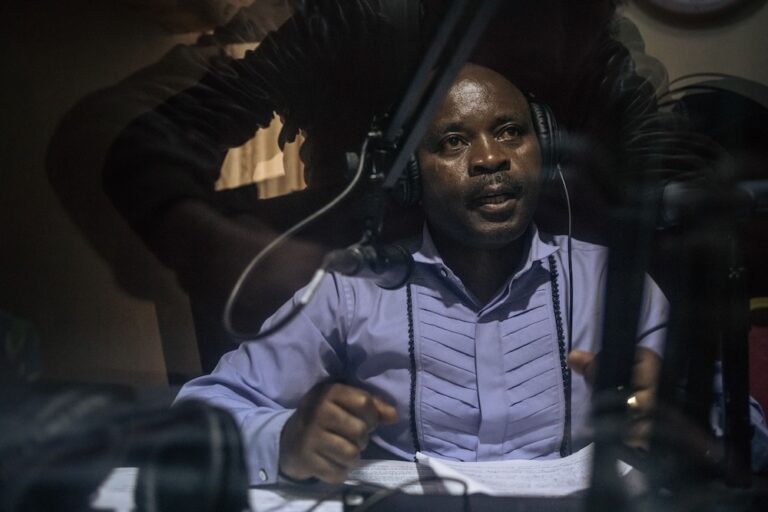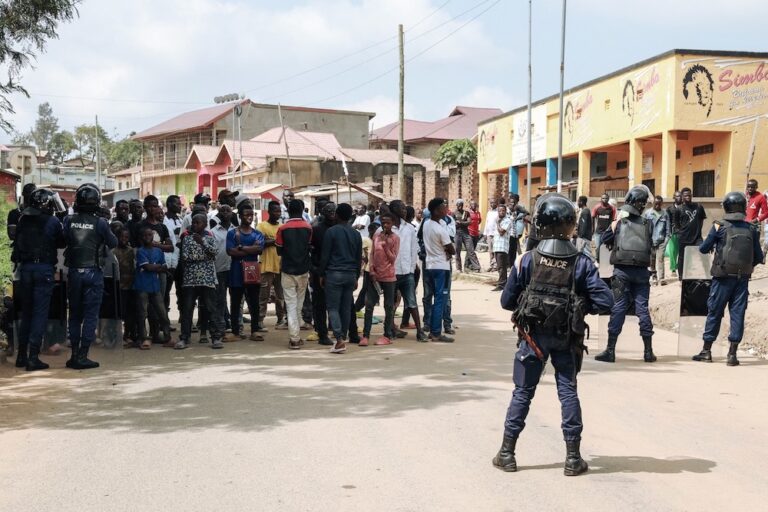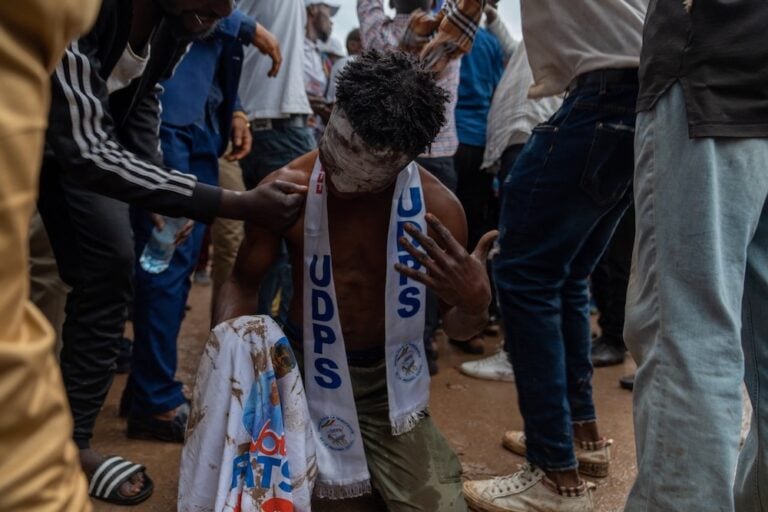**Updates IFEX alert of 10 December 1999** (JED/IFEX) – In a 10 December 1999 press conference, JED launched its “1999 Report on the state of press freedom in the Democratic Republic of Congo”. The report points out that, as of 10 December, the anniversary of the Universal Declaration of Human Rights, three Congolese journalists are […]
**Updates IFEX alert of 10 December 1999**
(JED/IFEX) – In a 10 December 1999 press conference, JED launched its “1999 Report on the state of press freedom in the Democratic Republic of Congo”.
The report points out that, as of 10 December, the anniversary of the Universal Declaration of Human Rights, three Congolese journalists are imprisoned. The first, Joseph Mbakulu Pambu Diana, a journalist with Matadi Radio-Television (Radiotélévision Matadi, RTM) and local chapter president of the Congolese Press Union (Union de la presse du Congo, UPC) was arrested and imprisoned at Makala’s former central prison on 24 October 1998. His trial opened on 18 November 1999. It is being held at the Court of Military Order (Cour d’ordre militaire, COM). He is accused of “propagating false news” (see IFEX alerts).
The second imprisoned journalist is Kazadi Mbayo Djodjo, director of the weekly newspaper “La Palme d’Or”. He was arrested on 7 November and placed in solitary confinement at the National Information Agency’s (Agence nationale de renseignements, ANR) interior jail. He never faced a judge and he is not allowed any visitors, including family members (see IFEX alerts).
The last imprisoned journalist is Polycarpe Honsek Hokwoy, editor of the weekly newspaper “La Solidarité”. He has been held at Makala’s central prison since 6 November. The court granted him provisional release on 17 November, but he remains held for political reasons. Honsek had published a story which proved false, announcing the arrest of Mawapanga Mwana Nanga, the finances and budget minister (see IFEX alerts).
20 journalists were detained for long periods of time and 30 others spent less than 48 hours behind bars for real or alleged press offences in 1999. Eight journalists were victims of brutal or inhumane treatment in the course of their work. Eight others suffered threats or harassment in their work.
A good number of liberties were curtailed in 1999 with the war often used as an excuse. Many press freedom violations in the Democratic Republic of Congo were initiated because of the war in the country’s north-eastern region, with common accusations being “relaying intelligence to the enemy”, “discouraging the population or soldiers”, “divulging state secrets or defence secrets in times of war”, etc.
The report also notes that, faced with real or alleged errors by the press, all holders of power – be it political, economic or military – believe they must seek justice. Friends or family members working with the police, army or security apparatus are called upon to contribute to the tracking down of “undesirable” media or journalists. When a targeted journalist cannot be found, it has become common to take as hostages the editor, other journalists, visitors to the newspaper offices or family members at home; in effect, whoever happens to be in the vicinity. It is this excessive interpretation of justice which allowed an army general to imprison journalists at his residence for a ten-day period.


